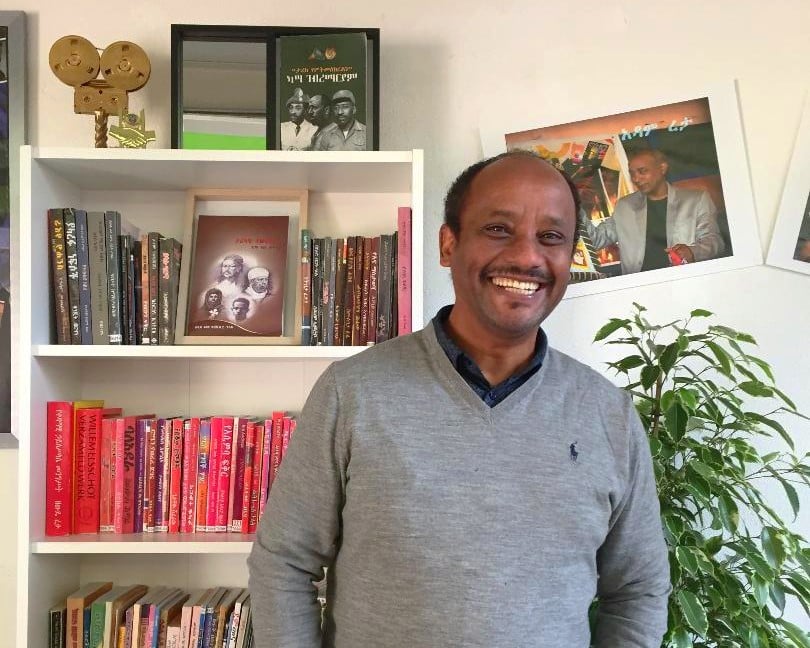Interview with Amsterdam-Ethiopian journalist Kibret Mekonnen
We had coffee with journalist and documentary filmmaker Kibret Mekonnen, one of the workshop organisers of Africa Day 2019. Twenty years ago, he came from Ethiopia to the Netherlands. The conditions for practising journalism there had become unbearable. "A week before leaving for the Netherlands, I was still in prison," Kibret tells us in his office in Amsterdam.
Between ambition and fear
At the age of 20, Ethiopian Kibret Mekonnen set up his own journalism magazine. In 1991, the current Ethiopian government came to power and, under pressure from the West, more press freedom was established. Yet in practice, this freedom of the press did not prove to be complete. "Around the publication of the magazine, I lived between ambition and fear every time," Kibret recounts, "I was in prison more than 30 times." The conditions in this Ethiopian prison were anything but nice, Kibret makes clear to us. "There were 15 of us in a space of 3 by 3 square metres, and although they told us that we would be given food and drink, that was not the case. Prison in Ethiopia is downright misery."
Snow
At the age of 24, Kibret went to the Netherlands for a media conference in Maastricht and then decided not to return. One thing he remembers well from the moment he arrived in the Netherlands. "The whole country was covered in white snow, I had never seen that before. I applied for an asylum permit and got it within nine months. I was lucky that my work as a political journalist in Ethiopia put me on the Amnesty International list, so the application went quickly. But it is not so easy for everyone," he says with a slight frown on his face.
"Now I am seen as a neighbour"
From foreigner to neighbour
Apart from the quick asylum procedure, Kibret did not feel immediately accepted in all respects. "I am good at connecting with people, I am lucky for that. But in the beginning it was difficult, when I was constantly considered a foreigner. Still, I did manage to find my niche in those 20 years. If you ask in my neighbourhood Amsterdam-Oost now, "Where does Kibret live?", they can take you straight to my house. Now I am seen as a neighbour," Kibret says with a satisfied smile.
Neighbourhood journalist
As a neighbour, he puts a lot of effort into the neighbourhood. He is still busy as a journalist and documentary filmmaker. In addition, he now organises the Neighbourhood Film Festival. "In this, I train people to become neighbourhood journalists. This started as a small festival in my neighbourhood and is now growing into an event for the whole of Amsterdam. For me, the festival is about intimacy and feeling with the city, it should stay that way."
Africa Day as a starting point
The neighbourhood festival is not his last project. Ideally, he would like to set up another Africa centre in Amsterdam where people can share their African stories and cultural activities. "You hear a lot about Moroccan, Turkish and Surinamese minority groups, but African minorities are much less visibly organised. I want to bring out the story of us Africans and make it discussable. To this end, I see Africa Day as a starting point to bring people together and connect."
Want to learn more about Kibret's work and recent developments in Ethiopia? Then come to Africa Day 2019 on 13 April. There, Kibret will organise an interesting workshop together with fellow journalist Anania Sori.
Photo and text: Roos Daemen





